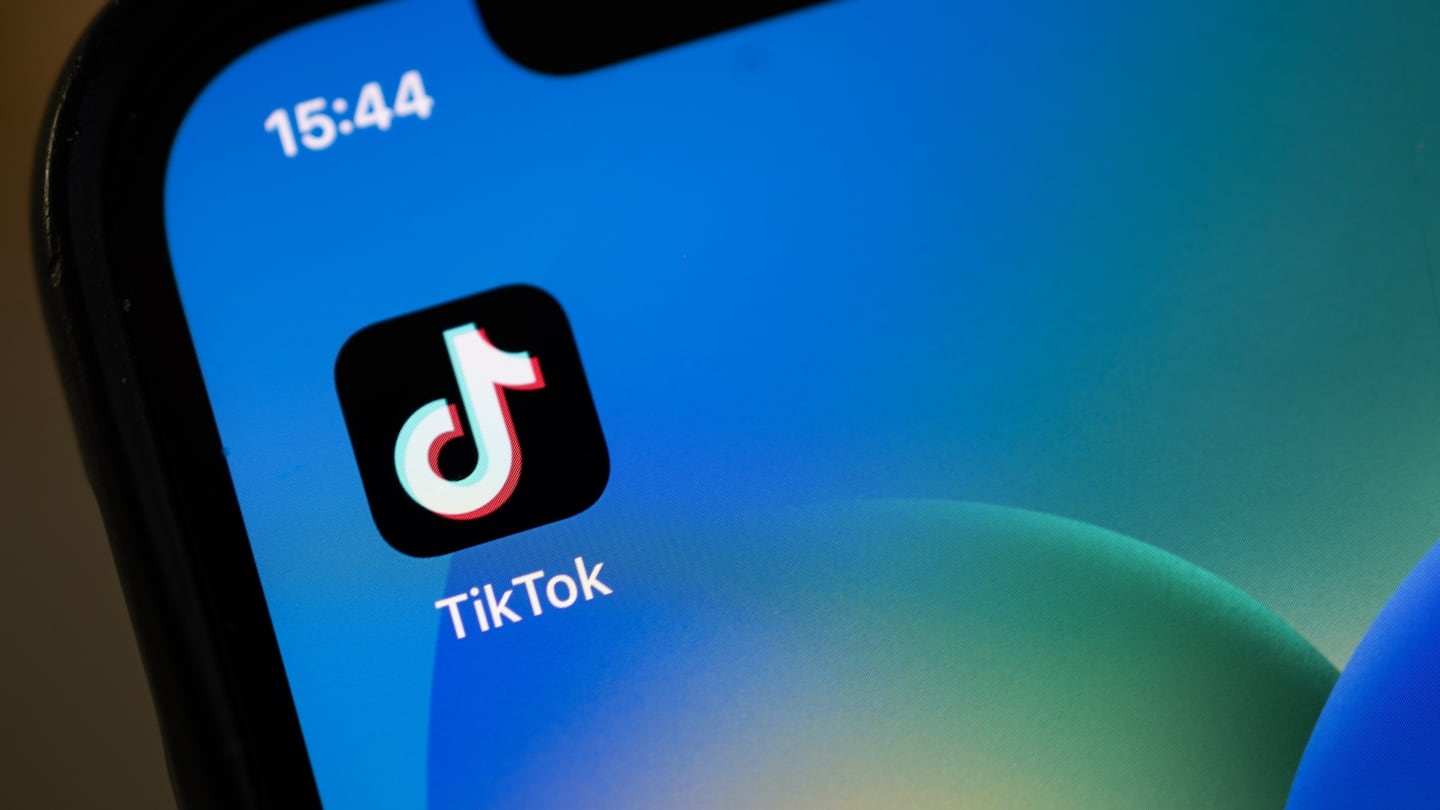
The Business of Fashion
Agenda-setting intelligence, analysis and advice for the global fashion community.

Agenda-setting intelligence, analysis and advice for the global fashion community.

Compared to fellow social media CEOs like Mark Zuckerberg or Elon Musk, TikTok chief executive Shou Zi Chew, keeps a low profile. That’s changing fast, as the executive has become the face of the app’s campaign to head off a potential ban or sale.
This week, he was front-and-centre on TikTok, telling Americans the Biden administration “could take TikTok away from all 150 million of you.” On Thursday, he’ll appear before a US House Energy and Commerce committee, where lawmakers are expected to grill Chew on the app’s connection to the Chinese government and how it collects and handles American user data.
A TikTok ban, first floated and then quickly abandoned by President Donald Trump in 2020, is back on Washington’s agenda. The social platform, which is owned by Beijing-based ByteDance, has become a flashpoint in the deteriorating relationship between the US and China. Critics have expressed concern about how data gathered by the app on its users might be used by the Chinese government, and whether China could use TikTok to influence US politics. A bill that would bar TikTok from operating in the US was approved by the US House Foreign Affairs Committee, and the federal government as well as some states have prohibited officials and agencies from using it. The Biden administration is reportedly pressuring TikTok’s parent, Beijing-based ByteDance, to sell the app to an American company.
TikTok’s uncertain future is being watched closely by the fashion industry, where many brands have come to rely on the app to connect with consumers, particularly younger ones. TikTok’s rise has been swift; launched in 2016, it now has 150 million active monthly users in the US. Last year, brands spent $13 billion on TikTok advertising. For thousands of Americans, creating content on TikTok is now their primary form of income and TikTok itself has 7,000 US-based employees.
ADVERTISEMENT
A ban would inevitably prompt not only a swell of both legal challenges and public backlash, but even TikTok’s ardent supporters now see it as a possibility. Now, creators and brands are thinking about a possible future without it.
“Smart marketers will start to develop backup plans and approach other channels,” said Stephanie Harris, CEO and founder of performance marketing agency PartnerCentric.
The primary accusation against TikTok is that because it’s owned by a Chinese company, which must comply with requests from the Chinese government, it cannot be trusted with Americans’ personal data. Another worry is that the Chinese government could influence the kind of content that Americans consume on the app — and because of TikTok’s increasing ubiquity in the US, that could have far-reaching consequences. TikTok, for its part, denies these allegations and says that the Chinese government has no access to US user data. A representative for TikTok did not respond to a request for comment.
Talk of banning TikTok may prompt a sense of déjà vu: This same conversation swirled in 2020 when the Trump administration attempted to ban the app, met legal blocks and then put pressure on ByteDance to sell. At one point, Microsoft or software giant Oracle were reportedly in acquisition talks.
When President Biden was elected, public talk of a ban or sale simmered down.
In the background, however, government scrutiny of TikTok continued. The Committee on Foreign Investments in the United States, a multi-agency government panel, has been investigating TikTok for years, and it’s their acquiescence that TikTok needs to secure to continue operating in the US. The committee is the one pushing for a sale to an American company. But the Chinese government would need to approve such a sale, and experts believe it’s unlikely they’d do so, and may argue that TikTok’s algorithms hold national security importance in China.
The current discussion is happening under very different circumstances than it did in 2020. Since then, TikTok has only become more popular, not only in the size of its user base, but also its importance to business’ bottom lines. If it were to go away, the outcry would surely be louder than it would have been in 2020.
Still, support for a ban or sale has bipartisan support: Sen. Mark Warner of Virginia, a Democrat, and Sen. John Thune of South Dakota, a Republican, introduced a bill intended to expand the president’s powers to allow him to take action against foreign social media platforms, with 10 co-sponsors across parties.
ADVERTISEMENT
Banning apps isn’t unheard of: India nixed TikTok in 2020, and in China, major American platforms like Facebook, YouTube and Instagram are also not allowed.
In the US, though, the First Amendment could prevent the government from blocking a major communication channel, said Heidi Tandy, a lawyer at Berger Singerman with experience in tech law. Courts blocked Trump’s attempt to ban Chinese messaging app WeChat. Biden eventually dropped the effort in June 2021.
Critics of the ban also argue that the federal government could be doing more to protect Americans’ data on all platforms, including homegrown ones. US online privacy regulations are more lax than those in, for example, the European Union, where GDPR was implemented in 2018.
“It’s very easy to pass federal legislation that mimics what California or Washington have, that balances people’s rights to communicate with companies’ rights to do what they want with people’s personally identifying information, including location data,” said Tandy.
There are risks to a ban that could impact US companies beyond their relationship with TikTok: If the US government sets a precedent for banning foreign apps, other countries may feel empowered to take a similar approach.
“Facebook, Twitter, Google and Amazon have the ability to fight against those bans in other countries, but the damage it would do to smaller American companies would be significant,” said Tandy.
TikTok has become such a major player in the digital ad space that if it vanishes, any other business with a primarily advertising-driven revenue model is likely to benefit.
“If it were to get turned off tomorrow, those dollars will be transitioned to other platforms,” said Amber Venz Box, president of influencer monetisation platform LTK.
ADVERTISEMENT
Certain players are particularly poised to win big, including Instagram and YouTube, whose Reels and Shorts features could step in to fill the void. There also could be new, not-yet-existent players that take the lessons learned from TikTok — consumers’ love of short-form video and ultra-personalised feeds — and apply them.
Creators are also under the threat of a TikTok ban. For many, though, Venz Box said this is simply the latest social media-related curveball. Over the past decade, influencers have had to make constant adjustments, from the introduction of the Instagram algorithm to Pinterest’s removal of affiliate links back in 2015.
For early-career creators whose audiences exist primarily or exclusively on TikTok, a ban could have a bigger impact.
“Older generations of creators know not to be a single platform player,” said Venz Box. “Newer generations may feel the urgency to build their audience elsewhere and realise the business need for that.”
Businesses that advertise on TikTok face a similar conundrum. Harris said that if TikTok is to shut down in the US, it will likely result in an increase in ad prices on competing platforms, and marketers should diversify now in order to avoid entering a sky-high market later on.
Still, many businesses are taking the ban talk as hypothetical, and it isn’t inspiring them to pull back from TikTok — quite the opposite, in fact.
“Many brands are going to continue to invest in TikTok as heavily or even more so than they did before until it gets turned off to try and take advantage of what they can,” said Harris.
The Chinese-owned app confirmed the figure ahead of TikTok CEO Shou Zi Chew’s testimony set for Thursday before the House Energy and Commerce Committee.
The app, known for tutorials, hacks, dupes and drama, has become a major beauty destination. Thinking big picture and focusing on education can help brands keep up with a rapid trend cycle.
Despite TikTok’s booming popularity and lower cost compared to Instagram, brands and experts say the return on ad spend doesn’t yet match more-established platforms, though that doesn’t mean brands can ignore it either.

Diana Pearl is News and Features Editor at The Business of Fashion. She is based in New York and drives BoF’s marketing and media coverage.
Join us for a BoF Professional Masterclass that explores the topic in our latest Case Study, “How to Create Cultural Moments on Any Budget.”
When done effectively, a cultural partnership can rightfully earn its own place in the zeitgeist. But it’s not so easy as just hiring a celebrity to star in an ad campaign; brands must choose a partner that makes sense, find the format that fits best and amplify that message to consumers.
Calvin Klein’s chief marketing officer Jonathan Bottomley speaks to Imran Amed about the strategy behind the brand’s buzzy Jeremy Allen White-fronted campaign.
Often left out of the picture in a youth-obsessed industry, selling to Gen-X and Baby Boomer shoppers is more important than ever as their economic power grows.